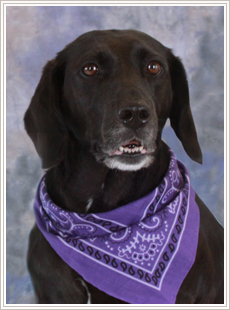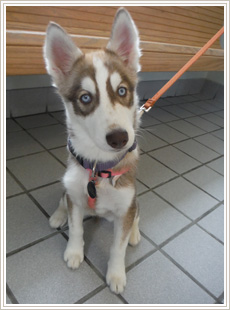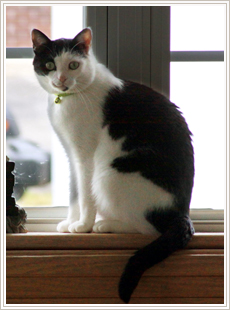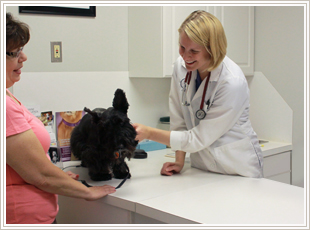Preventative and Wellness Care
 Vaccines for Your Dog or Cat
Vaccines for Your Dog or Cat
Vaccines are not only safe and effective; they are an important and fundamental piece of your pet’s preventative healthcare plan. Advances in veterinary immunology have made diseases that once were relatively common and fatal to pets easily preventable. There are also vaccines—such as for rabies and other zoonotic diseases—that help protect your family from very dangerous and difficult to treat illnesses. Additionally, with each passing year, veterinary science is improving on existent vaccines as well as increasing our ability to prevent an even wider array of contagious diseases.
Community Animal Hospital’s vaccination protocol is tailored to American Veterinary Medical Association guidelines, the lifestyle of your pet, as well as to the diseases he or she is most likely to encounter in our region of the country. We recommend an annual lyme, leptospirosis, and bordetella vaccines for dogs as well as distemper/parvo vaccines every three years for previously vaccinated adult dogs. For cats, we recommend annual distemper and respiratory vaccines as well as feline leukemia. All dogs and cats must be immunized for rabies.
 Microchip Lost Pet ID
Microchip Lost Pet ID
Does your pet have a microchip?
Microchipping your pet is a safe, simple and effective way to prevent pet loss. About the size of a grain of rice, identification microchips are encoded with your pet’s vital information and implanted beneath your pet’s skin, usually between the shoulder blades. Veterinary hospitals and animal shelters across North America are equipped with special scanners capable of reading these microchips. The information in the chip is used to reunite you with your pet.
Community Animal Hospital uses the HomeAgain microchip system. HomeAgain provides a number of very useful services to pet owners such as their National Pet Recovery Database, Lost Pet Specialists, Rapid Lost Pet Alerts, Lost Pet Medical Insurance, Travel Assistance for Found Pets, ASPCA Poison Control Hotline, and more.
 Puppy and Kitten Care
Puppy and Kitten Care
Puppies and kittens are a lot of fun to have in the home, but they require some special attention in order to assure they are happy and healthy companions for years to come. This is why Community Animal Hospital has developed a special puppy and kitten protocol and offers these services as a reduced-rate package.
The first year of your new friend’s life should include an initial wellness exam, screening for damaging parasitic infections such as worms or giardia, an initial dental exam, a nutritional evaluation and behavioral counseling. For puppies we also advise the start of medicines to prevent heartworm and parasites. Additionally, at four to six months of age we recommend spaying or neutering your pet.
Vaccines are also very important. Because we take a balanced approach to the care of your puppy or kitten, Community Animal Hospital spreads out vaccine visits. This ensures your new pet’s immune system adequately responds to each vaccine dose and receives full immunity.
These additional visits also provide you with opportunities to ask all the questions that come to mind regarding your pet’s care and give us a chance to become acquainted with your blossoming cat or dog.
Behavior and Nutrition Consultations
Behavior Counseling
Behavior problems are the number one reason that owners give up a pet. Community Animal Hospital offers behavior counseling for many of your pet’s problems including inappropriate urination or defecation, aggression, separation anxiety, inappropriate chewing and barking, scratching, digging, and spraying.
Our veterinarians will work closely with you to understand the source of these behavior issues and in developing a specific plan to help eliminate your pet’s unwanted behavior. Oftentimes, the behavior problem, such as inappropriate voiding, can be linked to a medical issue (cystitis, bladder stones, kidney disease, etc.) and can be treated medically. For other behavior issues, the treatment plan often includes behavior modification and may include medication-assisted training.
 Nutritional Counseling
Nutritional Counseling
One of the key factors contributing to the improved health and longevity of companion animals is our expanded knowledge on the important role that proper nutrition plays in overall health. During your pet’s comprehensive physical examination we evaluate his or her body condition and give recommendations based on what we see. However, some pets with nutritional issues or chronic conditions such as diabetes require a little bit more intervention, which may include specialized foods, feeding strategies and even prescription diets.
Community Animal Hospital has trained staff available to help you with your pet’s nutritional challenges. We also have a diverse inventory of prescription foods and high-quality nutritional products at our facility. If your pet requires a prescription diet we do not carry, we can easily order it for you. We can also offer advice and provide information about diets that benefit specific medical conditions such as liver disease, bladder and kidney stones, renal failure, food allergies, diabetes and other conditions.
 Oncology
Oncology
A diagnosis of cancer can be frightening. However, most pets respond extremely well to cancer treatments, which include tumor removal surgery and chemotherapy, and go on to lead happy, healthy lives. Additionally, pets do not experience the same side effects from chemotherapy that humans do, and often go on to lead healthy lives long after their cancer is gone.
After a cancer diagnosis is made, Community Animal Hospital will discuss the range of treatment options available to you as well as provide specialist referrals if necessary. We can perform most tumor removal surgeries, but may refer you to a specialist depending on the location and type of cancer. We can also provide a range of chemotherapies as either primary or adjuvant treatment.
 Veterinary Specialist Referrals
Veterinary Specialist Referrals
If your pet’s best interest is served by referral to a specialist for care, your veterinarian will make that recommendation. We will also work with you to ensure that your animal receives the services it needs in a timely manner and that there are open lines of communication between our practice, the specialist and you. Not only is it important that they receive necessary medical information from us before your pet is treated, but we must receive test results, diagnosis, and recommendations from the specialist in order to ensure continuity of care.
Community Animal Hospital maintains a good working relationship with the Virginia-Maryland Regional College of Veterinary Medicine’s animal hospital as well as other referral centers.





